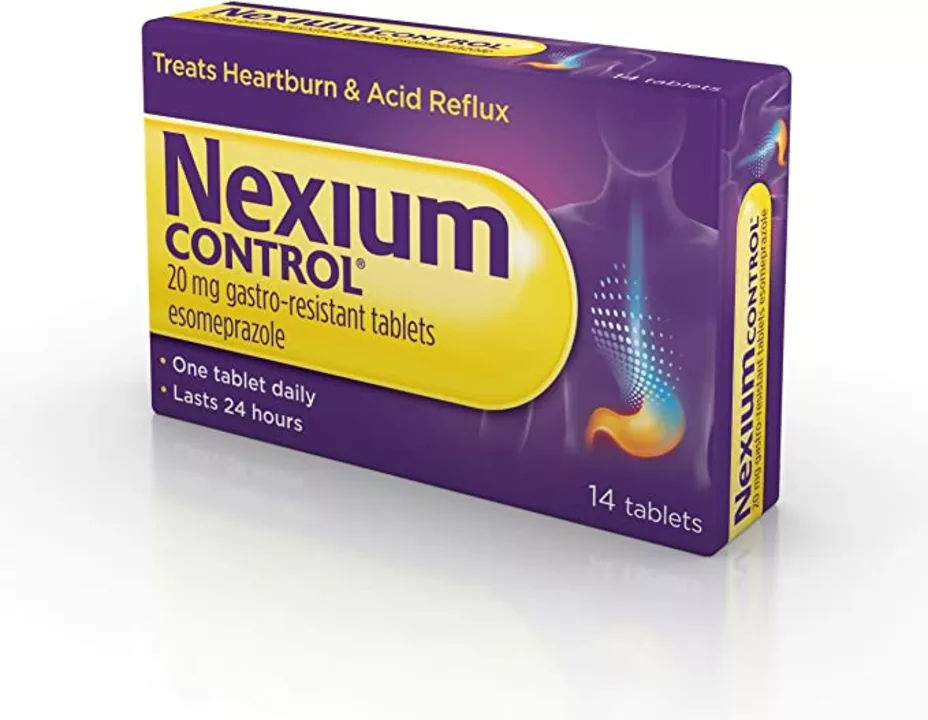Introduction to Esomeprazole and Omeprazole
As someone who has experienced the discomfort of acid reflux, I know how important it is to find the right treatment to manage symptoms. In this article, we will compare two popular medications for treating acid reflux - Esomeprazole and Omeprazole. These drugs belong to a class of medications called Proton Pump Inhibitors (PPIs), which work by reducing the amount of acid produced by the stomach. Let's dive into the details of these two medications and see which one might be better for you.
Understanding How Proton Pump Inhibitors Work
Before we get into the differences between Esomeprazole and Omeprazole, let's first understand how PPIs work to treat acid reflux. When you eat, your stomach produces acid to break down the food. However, in some cases, the stomach produces too much acid, which can lead to acid reflux or other gastrointestinal issues. PPIs work by blocking the enzyme in the stomach wall responsible for producing acid. This reduces the amount of acid in the stomach and allows any irritation or inflammation in the esophagus to heal.
Esomeprazole: Overview and Benefits
Esomeprazole, commonly known under the brand name Nexium, is a PPI medication that has been available since 2001. It is prescribed to treat conditions such as gastroesophageal reflux disease (GERD), ulcers, and inflammation of the esophagus. Some of the benefits of Esomeprazole include its ability to provide rapid and sustained relief from heartburn and other symptoms associated with acid reflux. It also has a lower potential for drug interactions compared to other PPIs, which can be an important consideration for those taking multiple medications.
Omeprazole: Overview and Benefits
Omeprazole, sold under the brand name Prilosec, is another PPI medication that has been available since 1989. It is also used to treat conditions such as GERD, ulcers, and esophageal inflammation. Omeprazole is known for its effectiveness in relieving heartburn and other acid reflux symptoms. Additionally, it is available in both prescription and over-the-counter (OTC) formulations, making it more accessible to those who may not require a prescription-strength medication.
Comparing the Effectiveness of Esomeprazole and Omeprazole
When it comes to the effectiveness of these two PPIs, various studies have been conducted to determine which one is superior. Some studies suggest that Esomeprazole may provide slightly faster and more effective relief from heartburn and other acid reflux symptoms compared to Omeprazole. However, other studies have found no significant differences in the effectiveness of the two medications. Ultimately, the effectiveness of these medications can vary from person to person, and your healthcare provider may recommend one over the other based on your specific needs and medical history.
Potential Side Effects and Risks
As with any medication, both Esomeprazole and Omeprazole come with potential side effects and risks. Common side effects of these PPIs include headache, diarrhea, nausea, and abdominal pain. While these side effects are generally mild and temporary, it's important to discuss any concerns with your healthcare provider. Long-term use of PPIs has been associated with an increased risk of bone fractures, kidney problems, and vitamin B12 deficiency. It's essential to weigh the benefits and risks of these medications with your healthcare provider before starting treatment.
Cost Comparison: Esomeprazole vs. Omeprazole
One major difference between Esomeprazole and Omeprazole lies in their cost. Esomeprazole is typically more expensive than Omeprazole, especially when considering the OTC versions. However, the cost difference may not be significant for those with insurance coverage or who are eligible for patient assistance programs. It's essential to consider the cost of each medication when deciding which PPI is right for you, especially if you will be taking it for an extended period.
Choosing the Right PPI for You
In conclusion, both Esomeprazole and Omeprazole are effective PPI medications for treating acid reflux and related conditions. While some studies suggest that Esomeprazole may provide slightly faster and more effective relief, the difference may not be significant for every individual. Ultimately, the choice between Esomeprazole and Omeprazole will depend on factors such as your specific medical needs, potential drug interactions, cost, and personal preference. Always consult with your healthcare provider before starting any new medication, and be sure to discuss any concerns or questions you may have.






Narasimha Murthy on 11 May 2023, AT 05:01 AM
While the article presents a balanced overview, it glosses over the fact that the marginal benefits of esomeprazole are arguably overstated. The cited studies are often funded by manufacturers, which raises questions about the impartiality of the data. Moreover, the cost differential is presented without a rigorous cost‑effectiveness analysis, leaving readers with an incomplete picture. In practice, many patients achieve comparable symptom control with the cheaper omeprazole, making the purported superiority of esomeprazole appear more marketing than medicine. Nevertheless, the piece does a competent job of summarizing the mechanisms of PPIs, albeit with a subtle bias toward the newer drug.